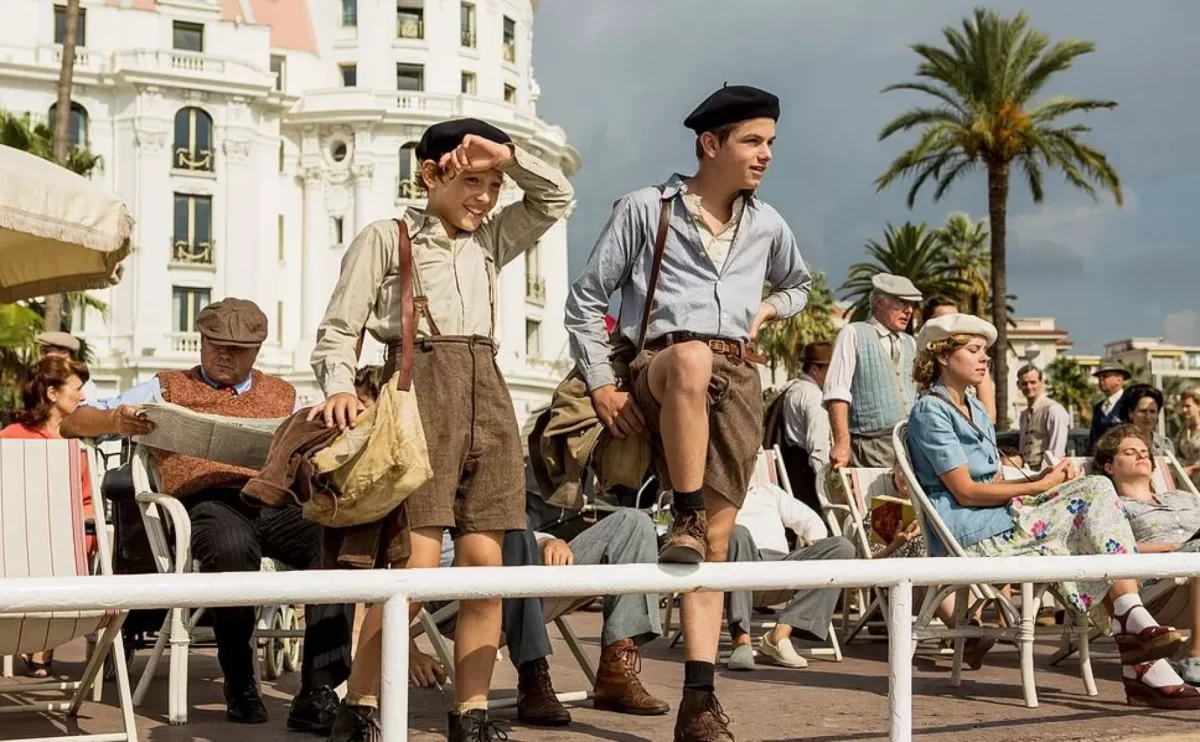Joseph Joffo, a French Holocaust survivor, published a best-selling memoir in 1973, but more than four decades elapsed before it was converted into a movie. Christian Duguay’s absorbing feature film, A Bag of Marbles, a joint French-Canada production, will be available on DVD, iTunes and Amazon on March 14.
The Joffos, a Russian Jewish family from Paris that endured French and German persecution after Germany’s occupation of France in 1940, are featured in this impassioned film. Their two youngest sons, Maurice (Batyste) Fleurial Palmieri) and Joseph (Dorian LeClech), are at the center of it. The actors who portray the main characters rise to the occasion.
In May 1942, two years after the collaborationist Vichy regime enacted antisemitic laws, the Germans forced Jews to wear the dreaded yellow star on their clothes. In an early scene illustrating Joseph’s naivety, he trades a yellow star for a bag of marbles with a non-Jewish friend.
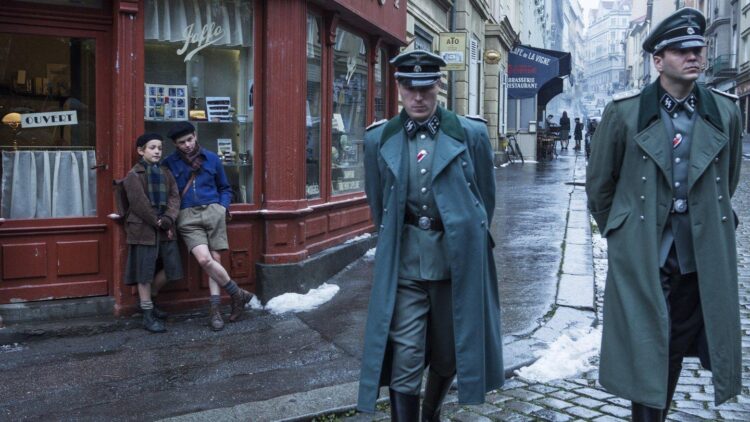
By then, Joseph’s classmates have discovered he is Jewish and are hurling antisemitic taunts at him. Duguay makes an important point here. Some French people were no less antisemitic than the Germans.
Having read the handwriting on the wall, Roman Joffo (Patrick Bruel), the head of the family and a barber, makes a crucial decision. He decides to send Joseph and Maurice into the Free Zone, out of reach of the Germans.
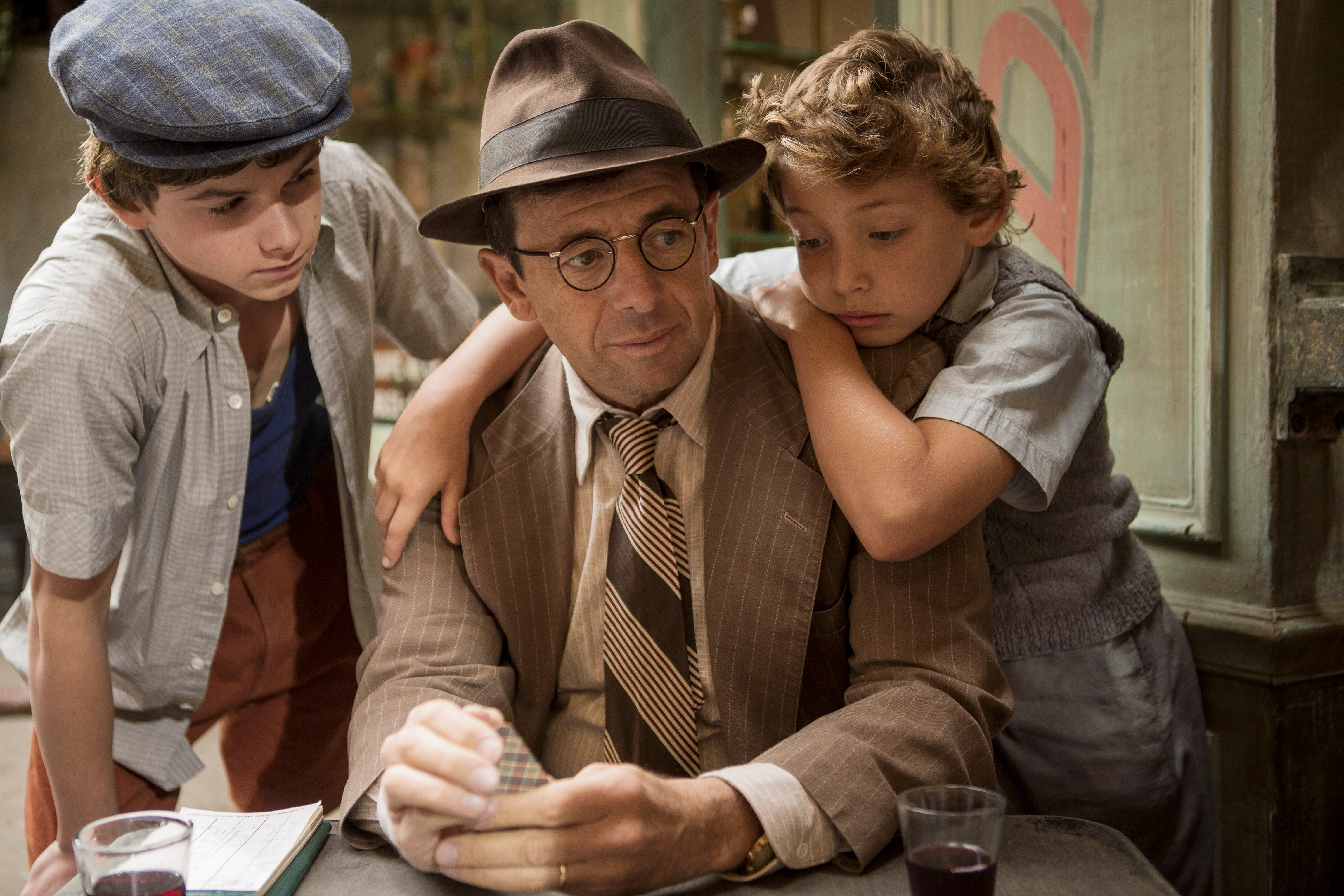
Roman instructs the boys to masquerade as Catholics, lest they be caught as Jews, and assures them they will all meet in a week’s time in the French Riviera city of Nice. As Joseph and Maurice embark on their journey, Roman and his wife, Anna (Elsa Zylberstein), as well as their two older sons, Albert and Henri, remain behind in Paris.
Their trip is dangerous. En route to their destination, their train is stopped by German soldiers. Passengers who flee are summarily shot. A priest in their compartment saves them from certain death and warns them not to place their trust in strangers.
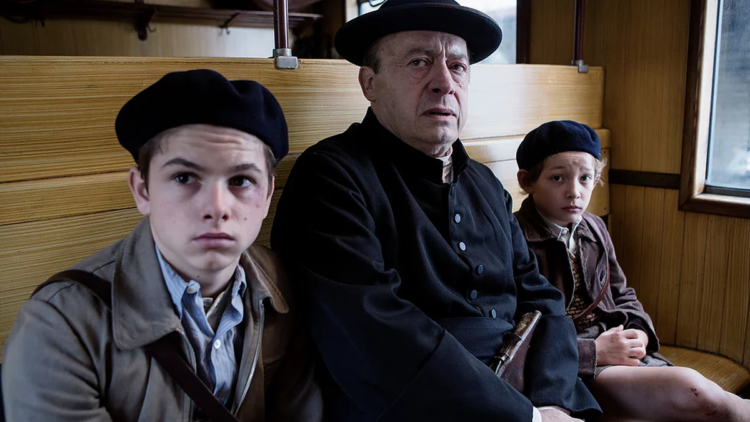
This vignette underscores the duality of the French in Vichy France. While some Catholics risked their lives to assist Jews, still others were scoundrels or opportunists. One such person is a rough-hewn guide whom they pay to lead them out of harm’s way.
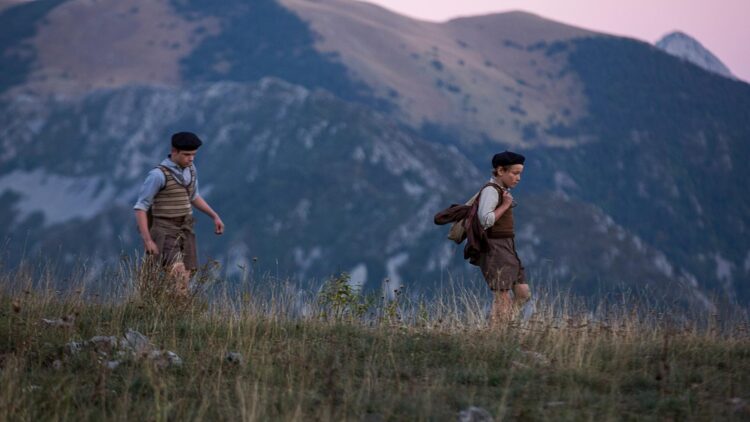
Joseph and Maurice traverse rugged mountains to reach Nice, a sun-lit, carefree city on the shores of the Mediterranean Sea occupied by the Italian army. There they are reunited with their family. The Italians are portrayed as benevolent occupiers.
With the fall of Benito Mussolini’s fascist regime in 1943, Italian troops are replaced by Germans, compelling the Joffos to split up again. Joseph and Maurice, along with other Jews, are captured in a Germany roundup. A German interrogator repeatedly asks them if they’re Jewish, but they stoutly insist they are Algerian Catholics. A Jewish doctor working for the Germans helps them out of their predicament.
They escape to the mountains again and reach a small town where they find temporary jobs. Maurice works in a restaurant, while Joseph is employed by an antisemitic bookseller and ardent Vichy supporter whose vicious son is a member of a fascist militia.
Their exploits in dodging Vichy and German enemies are convincingly and even, at times, poignantly conveyed. A Bag of Marbles underscores an era when the lives of Jews under Nazi and Vichy tyranny were expendable.
